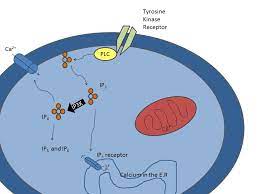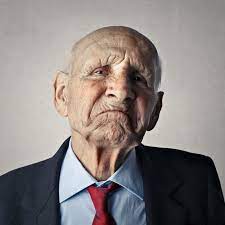Why Does Human Growth Hormone Production Drop As We Age?
Video Link: https://vimeo.com/182905481
Video Download: Hgh Declines With Aging
Video Stream: Hgh Declines With Aging

HGH Declines with Aging
Human Growth Hormone is one of the most important hormones released by the human body. Although the hormone is vital to optimal human function, it is also a physiological inevitability that HGH secretion will decline sharply as a result of the aging process.
There is even evidence that Human Growth Hormone Deficiency is not only a result of the aging process but may actually be one of its root causes. HGH Deficiency and Insulin-like Growth Factor 1 (IGF-1) Deficiency are related to a number of medical conditions that become more problematic with age, including:
Reduced Libido
Decreased Sexual Ability
Excess Fatigue and Exhaustion
Changes in hair texture and color
Wrinkles and Fine Lines
Liver Spots
Weak Skin
Osteoporosis
Changes in Body Mass Configuration
Heart Disease
Muscle Weakness
Although these symptoms can all be correlated with the aging process, men and women with HGH Deficiency begin to display these symptoms at a much faster rate.
Human Growth Hormone Examined Closely
Scientists have now been studying Human Growth Hormone and the effects of HGH Deficiency for generations. Over the last 40 years, scientists have become exceedingly more interested in the effects of HGH Deficiency in otherwise normal men and women. Scientists have proven that endogenous HGH production declines as a function of age, beginning in the late twenties, and the quicker that HGH levels decline, the more quickly the aging process seems to take root.
Human Growth Hormone Levels Slowly Drop after 30
HGH levels generally decline at a slow but insipid rate of one to two percent every year. This means that from year to year, it is unlikely you will recognize the changes taking place, but as years begin to accumulate, you'll be able to understand the devastating effects of HGH as it relates to the aging process.
HGH is responsible for physical rehabilitation in humans, and the hormone has existed in some form for the entirety of animal existence. Every animal on earth has its own form of Growth Hormone, which facilitates optimal physiological function, and in every animal, the pituitary gland slowly loses its ability to secrete the hormone over time.
HGH Deficiency Slows Cellular Metabolism
Human Growth Hormone is responsible for increasing cellular metabolism, which helps the body rehabilitate itself after injury and the general wear and  tear resulting from day-to-day living. When HGH levels become dysfunctionally low, this causes the body to lose its ability to repair and maintain itself. Cells begin to survive long past their best-by and slowly deteriorate in function until they either replicate or die off.
tear resulting from day-to-day living. When HGH levels become dysfunctionally low, this causes the body to lose its ability to repair and maintain itself. Cells begin to survive long past their best-by and slowly deteriorate in function until they either replicate or die off.
HGH Deficiency Causes Aging
This is one of the primary causes of the aging process. Cells begin to die off quicker than they can be replicated. This is also why situations such as injuries or stress are even more difficult for the body to handle with age. Without sufficient levels of Human Growth Hormone, the human body simply doesn't have the resources to repair itself and maintain homeostasis. Over time, these negative effects accumulate, leaving us at an ever-increasing risk of dysfunction and mortality.
Human Growth Hormone Levels Peak During Puberty
Human Growth Hormones are at their highest during the period of our young lives in which our bodies are developing at their quickest. Although Estrogen and Testosterone are responsible for sexual differentiation, Human Growth Hormone turns us into robust and healthy adults. As we enter our thirties and HGH levels begin to decline, humans average a loss of around fourteen percent of total Human Growth Hormone secretion every ten years. Over time, these results become incredibly dramatic.
A healthy man or woman secretes about 500mcg of Human Growth hormones at the age of 20More than enough to maintain optimal health, physical maintenance, and emotional and cognitive well-being.
HGH Deficiency at 40
However, by the age of forty, these levels drop precipitously, and we release only around 200mcg of HGH. At this level, some men and women will exhibit few symptoms of HGH Deficiency, and those who maintain a properly active and healthy lifestyle may be producing a significantly higher amount of Human Growth Hormone, but many individuals will start to display many signs of physiological breakdown, including wrinkles, loss of skin and muscle tone, fatigue, and signs of sexual dysfunction.
This is the age at which Human Growth Hormone Replacement Therapy can function as a form of preventative medicine. Although HGH Deficiency can be diagnosed during this period, many of the symptoms remain clandestine. Cardiovascular and bone health can begin to decline without significantly affecting overall health.
If allowed to fester, however, underlying physiological issues related to HGH Deficiency can become detrimental with age, greatly increasing mortality risk, even from year to year.
HGH Deficiency at 80
By age 80, Human Growth Hormone Deficiency becomes universally severe. Men and women of this age average a minuscule level of 25mcg of HGH released per day. When hormone levels are this low, the effects are obvious. Energy levels are near zero, and it becomes hard to even get out of bed  many days. Cognitive decline occurs at a more and more rapid pace.
many days. Cognitive decline occurs at a more and more rapid pace.
The effects of osteoporosis begin to compound, and in the 70s and 80s, this is when long-term neglect of hormone levels and the skeletal system put you at exceedingly high risk for bone fractures and breaks. In addition to this, the heart slowly weakens over time, and if cardiovascular complications such as high cholesterol and arterial plaques have not been treated sufficiently, you may even be lucky to make it to 80!
HGH Injections Produce Benefits at Any Age
HGH Hormone Replacement Therapy can still be beneficial even if began at this late age. Human Growth Hormone can increase muscle strength and energy, making it easier to go about your day-to-day activities.
It may even be able to allow you to do some things you used to love that you thought you'd never be able to experience again! In addition to this, Human Growth Hormone Replacement Therapy can protect your bones from further physiological breakdown, helping you reduce your risk for life-threatening bone breaks.
HGH can also safeguard the heart of this incredibly at-risk subset of men and women. It can help break down dangerous plaques and normalize cholesterol levels, decreasing the risk of cardiovascular disease and stroke.
Life Changing Human Growth Hormone Replacement Therapy
Although HGH Hormone Injections have been shown to produce numerous benefits, scientists have just begun to scratch the surface of the numerous benefits of HGH Hormone Treatments. It seems that every few weeks, another significant study comes out in regard to Human Growth Hormone, enhancing our knowledge of the hormone and proving more and more ways that the hormone can be used as a medical treatment to enhance health.
If you are interested in learning more about HGH Injections, or any other form of Hormone Replacement Therapy, we encourage you to continue to explore our website.
If you think you may be feeling the effects of HGH Deficiency, we have a friendly and top-quality staff of Anti-Aging professionals who can help you diagnose and treat any underlying hormone deficiencies that may be negatively impacting your life. Call or contact us today, we would love to help set you on the path to greater health!
- 0001 What Is Andropause And How Can I Prepare For It? [Last Updated On: October 2nd, 2025] [Originally Added On: February 20th, 2021]
- 0002 Theories On Aging [Last Updated On: October 4th, 2025] [Originally Added On: February 21st, 2021]
- 0003 Sleep And Hgh Go Hand In Hand [Last Updated On: September 30th, 2025] [Originally Added On: February 22nd, 2021]
- 0004 L-carnitine Has The Ability To Preserve Mental Sharpness In The Elderly [Last Updated On: September 29th, 2025] [Originally Added On: February 23rd, 2021]
- 0005 Knowing Two Languages Can Postpone Dementia [Last Updated On: September 28th, 2025] [Originally Added On: February 24th, 2021]
- 0006 What Are The Functions Of Human Growth Hormone? [Last Updated On: September 26th, 2025] [Originally Added On: February 25th, 2021]
- 0007 Hgh Sleep: Keep Young And Healthy With Deep Sleep [Last Updated On: September 25th, 2025] [Originally Added On: February 26th, 2021]
- 0008 Growing Life Spans And Life Expectancy [Last Updated On: September 23rd, 2025] [Originally Added On: February 28th, 2021]
- 0009 Flax Seed Oil: Longevity And Anti-aging Medicine [Last Updated On: September 22nd, 2025] [Originally Added On: March 1st, 2021]
- 0010 Exercise To Increase Your Hgh Production! [Last Updated On: February 19th, 2025] [Originally Added On: March 2nd, 2021]
- 0011 Eighteen Suggestions For A Longer And Happier Life [Last Updated On: September 21st, 2025] [Originally Added On: March 3rd, 2021]
- 0012 Chemical Pollution Is Destroying Masculinity [Last Updated On: February 19th, 2025] [Originally Added On: March 4th, 2021]
- 0013 Bio-identical Hgh Hormone Replacement Therapy [Last Updated On: September 20th, 2025] [Originally Added On: March 5th, 2021]
- 0014 The Longevity Film: A review [Last Updated On: April 7th, 2025] [Originally Added On: October 25th, 2022]
- 0015 Blue Zone Cultures and Their Connection to Longevity [Last Updated On: February 20th, 2025] [Originally Added On: October 27th, 2022]
- 0016 The Prevalence and Impact of Endocrine Disrupting Chemicals [Last Updated On: February 11th, 2025] [Originally Added On: February 11th, 2025]
- 0017 Understanding Exercise's Role in Slowing Down Aging [Last Updated On: February 10th, 2025] [Originally Added On: February 12th, 2025]
- 0018 Understanding the Concept of Blue Zones [Last Updated On: February 16th, 2025] [Originally Added On: February 16th, 2025]
Word Count: 1214






